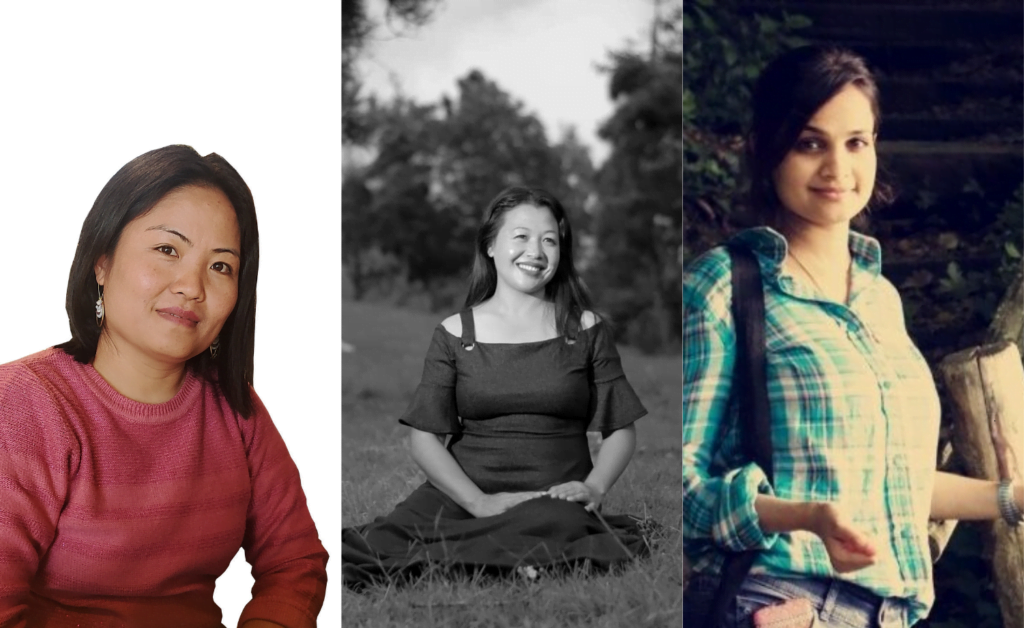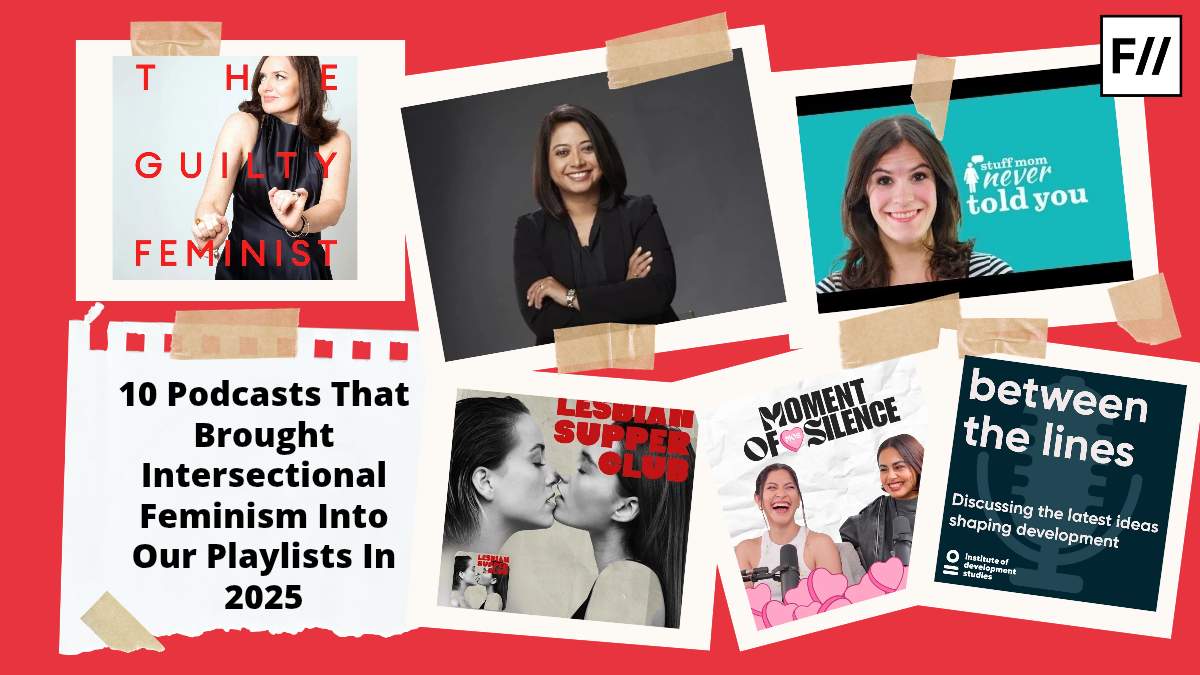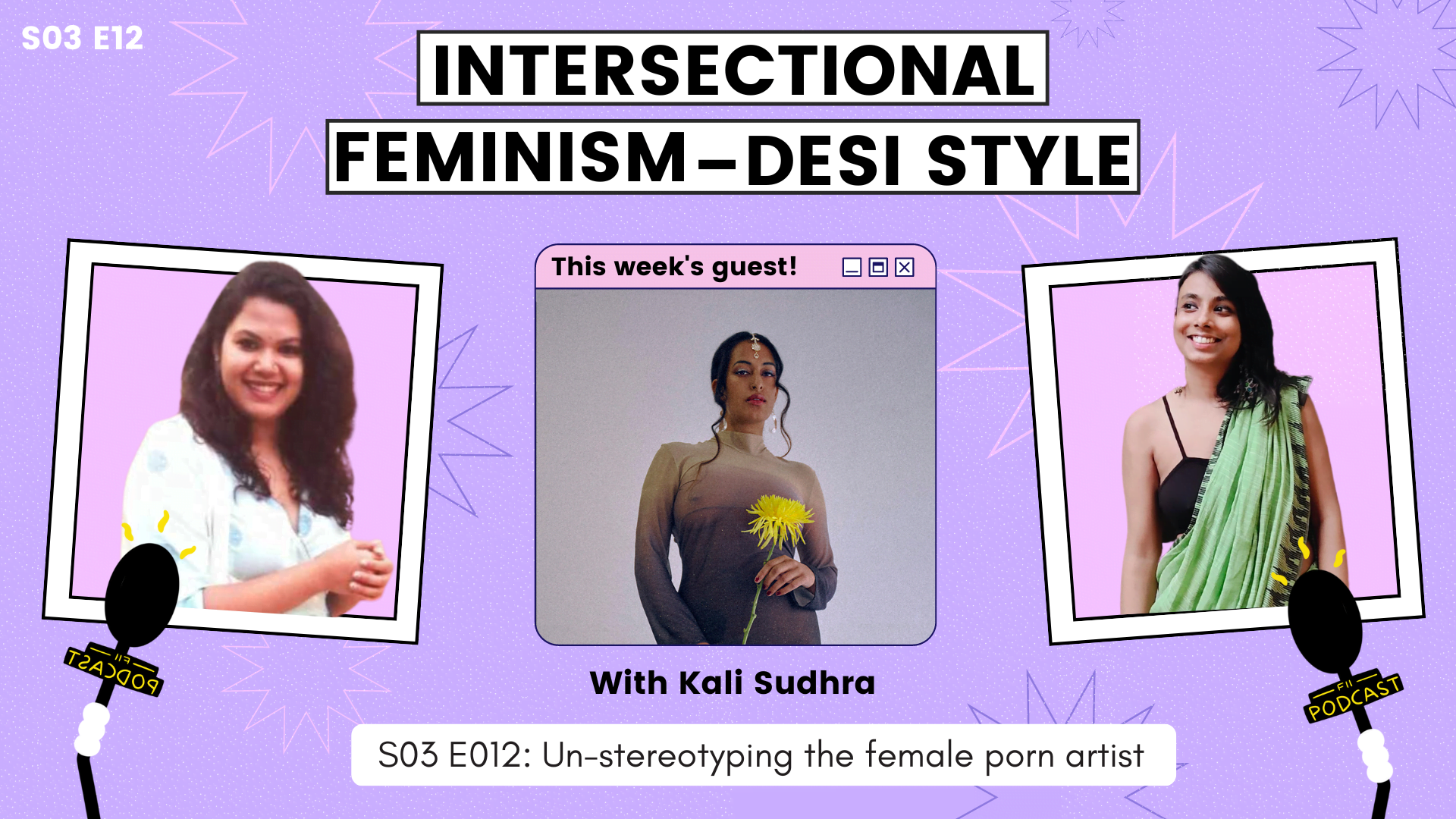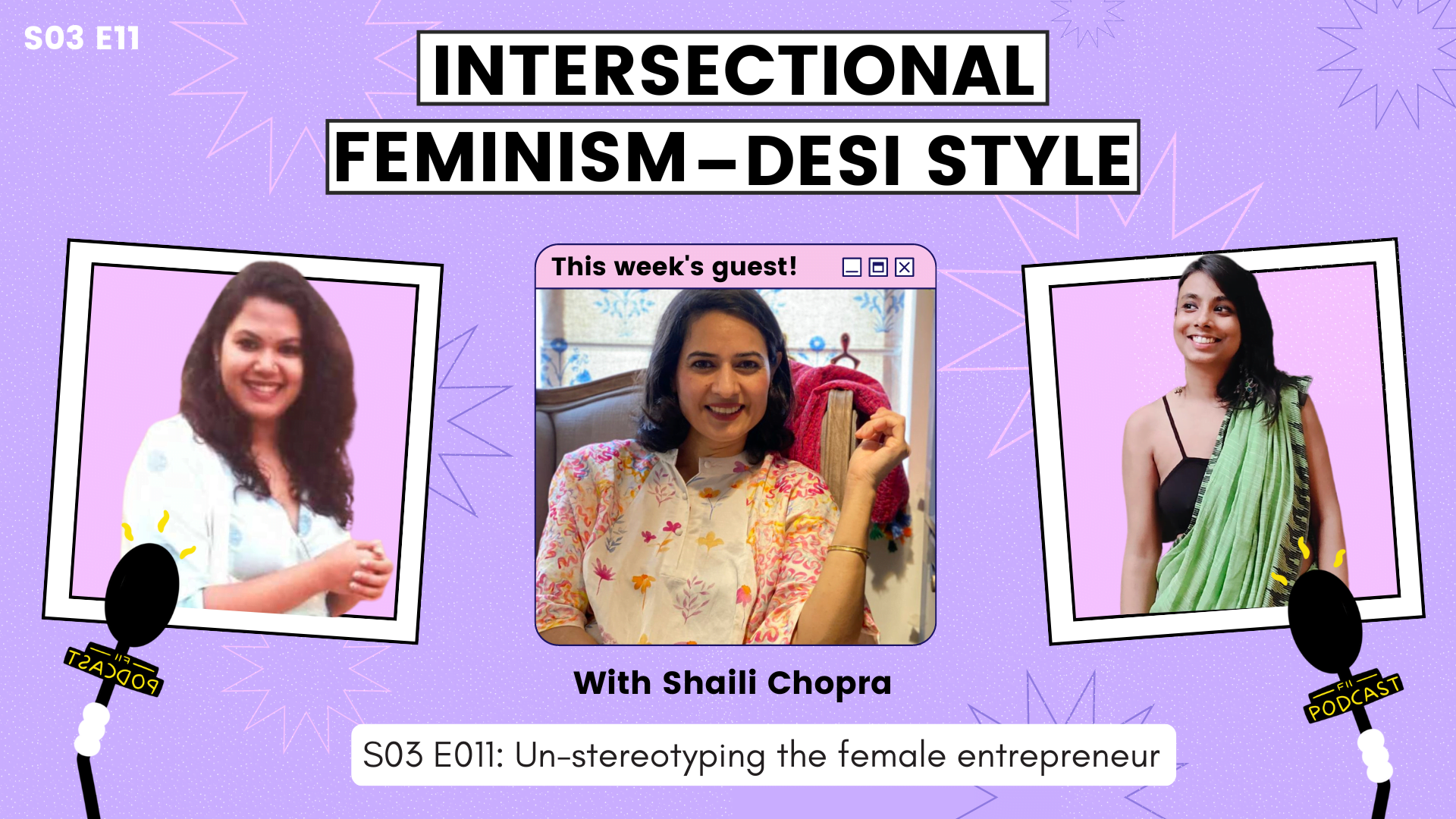Entrepreneurship and start-up stories are abundant; information, tips, resources, mentorship programmes for new and young founders, all exist. But these narratives that dominate the mainstream are those of male entrepreneurs. While many women are business owners, their voices and narratives are often missing from popular entrepreneurship discourse; Founders: A Her&Now podcast is here to remedy this.
The three-episode podcast features the stories of five women entrepreneurs running diverse businesses across the country. The podcast was launched by GIZ (Deutsche Gesellschaft für Internationale Zusammenarbeit GmbH), an international development agency, in association with Vaaka Media.
The founders featured in the podcast are Grace Rephung YL, who founded the EYAR Film Production House; Alemjungla Jamir, founder of Naga Bowl Express; Kavitha Gopu who founded Laddo Box, which manufactures sugar-free laddoos; Geetha Padma who founded Envirobotics, which manufactures robotic devices that clean water; Odapalli Vijaya Laxmi and Keerthi Priya who run a business that works on the solar dehydration of vegetables; and Tanushree Jain, who is the founder of Nushaura, which makes special wellness products like candles for asthma patients. These business ventures are spread across the country: the North-Eastern states, Rajasthan, and Telangana.

On why she agreed to do this podcast, Tanushree Jain, the founder of Nushaura said, “I did this podcast to inspire and instil courage in every woman to start their own journey. I hope this will ultimately lead to creating stronger, bolder, and financially independent women. Listening to my story will give them more courage, awareness, and inspiration to start their own sustainable ventures. Through this podcast, one of the important messages which I wanted to give out to other women entrepreneurs – who may just be embarking on their journey – is to not give up. I put my heart and soul into this podcast and I hope through this women discover remarkable possibilities.”
Keerthi Priya added, “We agreed to do the podcast to tell our story and how it is important to focus on building in tier two and tier three cities. The aim was to help other women understand the way different kinds of challenges – especially those that arise due to patriarchy – can be navigated. We also wanted women who are looking to start their own business to know that there is a lot of help and resources out there. There is a lot of support that is available in the ecosystem, we ourselves were supported and mentored by WEHub & Her&Now-Empowering Women Entrepreneurs, implemented by GIZ, on behalf of BMZ, Germany and in partnership with the MSDE, Govt of India.”
Sexism is rampant in the entrepreneurship sphere, when starting new businesses, women are often confronted with issues that are unique to them. While the talk of diversity, inclusion, and equality is emerging, a lot of it rarely translates into practice. Navigating such an exclusionary space can become an upward challenge and today to remedy this there are mentorship programmes by women entrepreneurs for aspiring women entrepreneurs, platforms that help connect women with investors, and much more, but a basic and core aspect continues to be missing – the mainstreaming of women’s narratives.
Also read: Podcast: The Audacity Project – Towards A Feminist India
Speaking of the importance of bringing the narratives of women founders to the forefront, Varika Pinnam, the co-founder of IDA (Ideate. Decide. Act), a platform that connects female founders to mentors, investors, and resources says, “I love seeing more and more stories of women succeeding in entrepreneurship coming to light because no matter how much progress has been made or how many organisations and opportunities have surfaced for female founders – and they undoubtedly have – the environment that exists for women entrepreneurs to succeed in is very disparate to that of men.”
She added, “I still see this huge gap between the kind of audacious and bold claims male entrepreneurs get the leeway – and even encouragement – to make that women just do not. Women get asked different questions from investors and judges; or are assumed to be assistants instead of CEOs; or are encouraged to find male co-founders, when the truth is that women-led businesses quantifiably succeed at higher rates and generate more ROI. However, all of that is hard to remember and navigate when you are in the trenches. It’s only in hindsight we can see these patterns but when women founders are in the day-to-day and facing the same biases repeatedly, it can be extremely difficult to persevere which is why the mainstreaming of these narratives are so important. They allow founders to not only navigate their business hurdles better and learn from the successes of others but be reminded that they are not alone and can overcome the personal struggles of entrepreneurship and the ups and downs of their journey to come out on the other side and thrive.”
The mainstreaming of women’s entrepreneurship narratives are essential. Women face systemic barriers that men don’t; and while we work on eliminating these barriers, women continue to be the greatest source of support for other women within the ecosystem. A report by the McKinsey Global Institute found that Canada could add $150 billion in incremental GDP in 2026 by addressing the issue of gender equality effectively. Despite these numbers, women’s active participation in the entrepreneurship and start-up space continues to be riddled with hurdles that are the product of internalised misogyny and sexism.
In her piece for Liisbeth titled ‘Gaslighting: The Silent Killer of Women’s Startups’, Petra Kassun Mutch wrote, “It comes down to this: If we want to realize the economic growth that women entrepreneurs are capable of generating, we need to stop gaslighting women entrepreneurs and cultivate an enterprise support system that delivers on the inside what it talks about on the outside.” This podcast is a small but important step in the mainstreaming of the voices of women founders in India and brings us closer to creating a better reality for women entrepreneurs. While eliminating systemic and institutionalised barriers standing in the way of women founders and addressing the casual sexism and internalised misogyny within the space will take time and work, it’s the right time to ensure that at least women’s voices are heard and not sidelined within the entrepreneurship ecosystem and that these voices and narratives reach women founders who manage new and growing business.
All three episodes of the podcast can be found here. IDA (Ideate. Decide. Act) resources can be found here.
Featured Image Source: Guillermo De La Torre, Stocksy
About the author(s)




